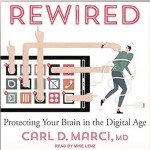Researchers often focus on experts and expertise. And bloggers like me often follow their leads.
You’ll read about the novice-expert continuum, the differences between novices and experts, and the expertise-reversal effect.
But let’s pause for a minute and ask: what is an expert? What is this “expertise” that novices gradually acquire on their way to becoming an expert?
A recent book by Roger Kneebone — Expert: Understanding the Path to Mastery — takes on these fascinating questions.
Biography, and Beyond
Kneebone himself followed an unusual trajectory to this set of questions. He started his professional life training to be a surgeon; his stories of emergency surgery in South Africa will set the squeamish on edge.
By the way, while not slicing his way through gory neck wounds, Kneebone also spent time learning how to fly at a local airport. Here again, his mishaps as a pilot provide important examples for his investigation of expertise.
After some number of years as a surgeon, he decided to retool himself as a general practitioner in rural England — the kind of doctor we would now call a “primary care provider.”
That is: instead of snipping gall bladders out of patients he barely knows, he discusses hang-nails with patients he’s known for years.
Oh, by the way, he also takes up playing the harpsichord — he even builds one of his own. You guessed it: this pursuit also informs his book.
He finally ends up with yet another career: he helped found a program for training surgeons. He is — rather curiously — an expert in expertise.
Sample Size
To explore the nature of expertise, Kneebone reaches outside his own experience to talk to a remarkable variety of experts. As in:
An expert taxidermist
An expert tailor
An expert harpsichord maker
An expert magician
An expert fighter pilot
An expert ceramicist
And so forth.
In these conversations, Kneebone finds remarkably consistent patterns. That is: the path to becoming an expert surgeon is surprisingly like the path to being an expert tailor or an expert magician — even though the actual work of these professions differs substantially.
In his book, he maps out this path, using examples and stories from all those professions.
I won’t trace the entire path from “apprentice” to “journeyman*” to “master*” — you should read Kneebone’s book if you want the details, but I do want to share a few of his insights.
First, Kneebone sees the phase transition from apprentice to journeyman as a change in focus. An apprentice teacher (for example) focuses on what s/he is doing: what does my lesson plan look like? Am I covering learning objectives?
A journeyman teacher focuses on the effect of those actions on students. Are they learning? Did they understand that example? How do their mistakes this week compare to their mistakes last week?
As a developing teacher, I can’t do the second part (focusing on students) until I’ve made the first part (focusing on myself) routine. But that switch really makes all that initial work worthwhile.
Second: the phase change from journeyman to mastery — if I’m understanding Kneebone correctly — involves another such change in focus. Journeyman teachers focus on their students. Master teachers focus on helping other teachers help their students. They switch to a meta-level, and think about the profession itself: how to pass on — and improve! — professional skills, norms, and knowledge.
Once again, this journeyman-to-mastery switch can’t happen until after MANY years of journeyman-level effort. And, in fact, lots of people never make this second leap: they stay focused on the proximate, not the ultimate, effects of their work.
If you’ve been teaching for a while, perhaps you can see these steps in your work, and your colleagues’. Certainly I can see that progression in the schools where I have worked.
Teaching Implications
As teachers, we’re understandably tempted to ask: “How should I think about helping my students along this path? How can I help my students arrive at expertise?”
Kneebone doesn’t address this question directly, but I suspect I know part of the answer.
In Kneebone’s model, the path from apprentice to journeyman to mastery takes…literally…years. Probably decades.
Kneebone doesn’t object to repetitive drudgery; in fact, he considers it an essential step in the process of developing mastery.
For instance: the master tailor he interviews spent literally months sewing a specialized part of a pocket…over and over (and over) again. While he was doing so, he often felt irritated and confused — all too aware of the seeming pointlessness of the exercise. Only once he’d travelled further along the path did he recognize all the subtleties he had absorbed along the way.
So, I suspect Kneebone would tell me: “Andrew, get real. Your high-school sophomores will not become experts at writing — or Shakespeare, or grammar — in a year. Becoming an expert in Shakespeare — in anything — takes DECADES.”
Instead, I found Kneebone’s book to be most helpful as we think about teacher training: how we can reasonably expect apprentices in our profession explore and sift their experiences on their way to later stages of expertise.
A Final Distinction
While I think Kneebone’s book gives better guidance for training teachers (over several years) than teaching students (over several months), I do think the terms “novice” and “expert” are useful in understanding our day-to-day classroom work.
Specifically, we should be aware that our students (almost always) know much less than we do about the topic we’re teaching; they are, relatively speaking, “novices.” We should not act as if they’re experts; doing so will almost certainly overwhelm their working memory.
And, we should not abandon “expertise” as a goal — as long as we focus on “relative expertise.”
That is: my sophomores won’t be Shakespeare experts at the end of the year. But — if I’m doing my job right — they will have more expertise than they did before.
They’re better at parsing Shakespearean syntax.
They know more about King James I’s obsession with witches, and with deception. (Hello, Gunpowder Plot.)
They’re on the lookout for the words “do,” “done,” and “deed” as they make their way through the poetry.
They’re not experts, but they’re relative experts: that is, experts relative to themselves at the beginning of the year.
As long as we keep the goal of “relative” expertise in mind, then the novice/expert distinction provides lots of useful guidance for our work with students.
As long as we recognize that Kneebone’s insights apply more to teaching training than to student instruction, I think his book provides importand and helpful insights into the nuances, trials, and joys of our work.
* These terms, of course, raise questions. Kneebone considers them, and sticks with this terminology.
Kneebone, R. (2020). Expert: Understanding the path to mastery. Penguin UK.



